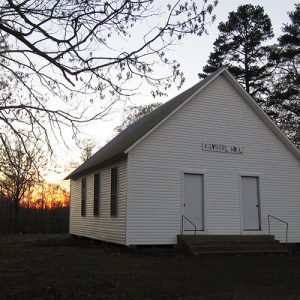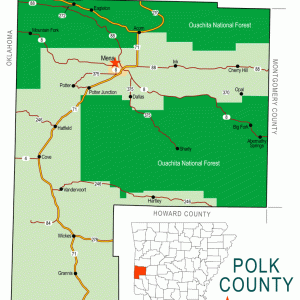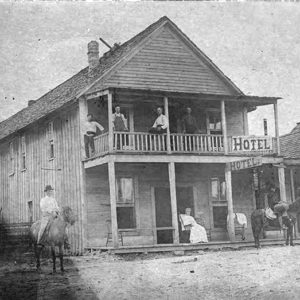calsfoundation@cals.org
Wickes (Polk County)
| Latitude and Longitude: | 34°18’11″N 094°20’18″W |
| Elevation: | 1,030 feet |
| Area: | 2.32 square miles (2020 Census) |
| Population: | 637 (2020 Census) |
| Incorporation Date: | December 14, 1944 |
Historical Population as per the U.S. Census:
|
1810 |
1820 |
1830 |
1840 |
1850 |
1860 |
1870 |
1880 |
1890 |
1900 |
|
– |
– |
– |
– |
– |
– |
– |
– |
– |
– |
|
1910 |
1920 |
1930 |
1940 |
1950 |
1960 |
1970 |
1980 |
1990 |
2000 |
|
– |
– |
182 |
121 |
401 |
368 |
409 |
464 |
570 |
675 |
|
2010 |
2020 |
|
|
|
|
|
|
|
|
|
754 |
637 |
|
|
|
|
|
|
|
|
Wickes is a city in southern Polk County. Built along the Kansas City Southern Railway (KCS) around the beginning of the twentieth century, Wickes is now dominated by the poultry industry. The 2010 census noted its population as more than fifty percent Hispanic.
Western Arkansas was heavily forested and sparsely populated until late in the nineteenth century, when the growth of railroads promoted the success of the timber industry. In the last decade of that century, Arthur E. Stilwell was head of the Kansas City, Pittsburg and Gulf Railroad (later the KCS). His company created and acquired a network of railroads linking various locations in Missouri, Oklahoma (then still called Indian Territory), Arkansas, and eventually Texas and Louisiana. The company moved coal and other minerals, as well as lumber and passengers. Building tracks into western Arkansas, the company established the city of Mena—now the county seat of Polk County—as well as Hatfield (Polk County), Vandervoort (Polk County), and Wickes. All of these communities were named for family members, friends, or financial supporters of Stilwell and his company. Wickes was named for Thomas Wickes, a vice president of the Pullman Company, which built railroad cars. The post office established at Wickes in 1897 was briefly designated Sherwood, but the name Wickes was being used by the end of that year.
Some of the land on which Wickes was built was already owned by Daniel Lebow, who had acquired a patent to the land in 1884. James Forsee purchased a patent to most of the remaining land in 1897, although Richard Snow had bought land just south of what would become Wickes in 1890. Forsee represented the Arkansas Townsite Company, which had contracts with the railroad surveying crew. Although Wickes never became a relatively large city like Mena, it was a successful lumber town for much of the twentieth century.
Wickes incorporated as a second-class city in 1944, by which time the lumber industry was generally declining following the Depression and the diversion of much of the labor force into military activities. In the aftermath of World War II, however, the poultry industry began to expand in western Arkansas. Tyson Foods Inc., founded in Springdale (Washington and Benton counties) in 1935, has both a hatchery and a poultry processing plant in Wickes. The city also has some stores, several churches—including Nazarene, Pentecostal, and Baptist congregations—and a few restaurants. A Baptist camp, Boggs Springs, is located a few miles west of Wickes.
Wickes is also close to Cossatot River State Park-Natural Area. The park was established in 1987, after more than ten years of negotiations with the Weyerhaeuser Company, to preserve land along the Cossatot River. Additional land was added in 1990, and a visitor and education center was dedicated in 2004.
Little information exists about the early schools in Wickes, although children were undoubtedly being taught in the community soon after it was organized. The schools in twenty-first-century Wickes are part of the Cossatot River School District, including Wickes High School, which in 2013 had about 250 students, and Wickes Elementary School, with about 300 students. Rich Mountain Community College also maintains an off-campus site in Wickes.
The population of Wickes in the 2010 census was 754, of whom 393 were identified as Hispanic.
For additional information:
Brown, Walter L. “Life of an Arkansas Logger in 1901.” Arkansas Historical Quarterly 21 (Spring 1962): 44–74.
Williams, Troy, and Leon Toon, eds. History of Polk County. Dallas: Curtis Media Corp., 1988.
Steven Teske
Butler Center for Arkansas Studies
 Crystal Hill Church
Crystal Hill Church  Polk County Map
Polk County Map  Wickes Hotel
Wickes Hotel 




Comments
No comments on this entry yet.